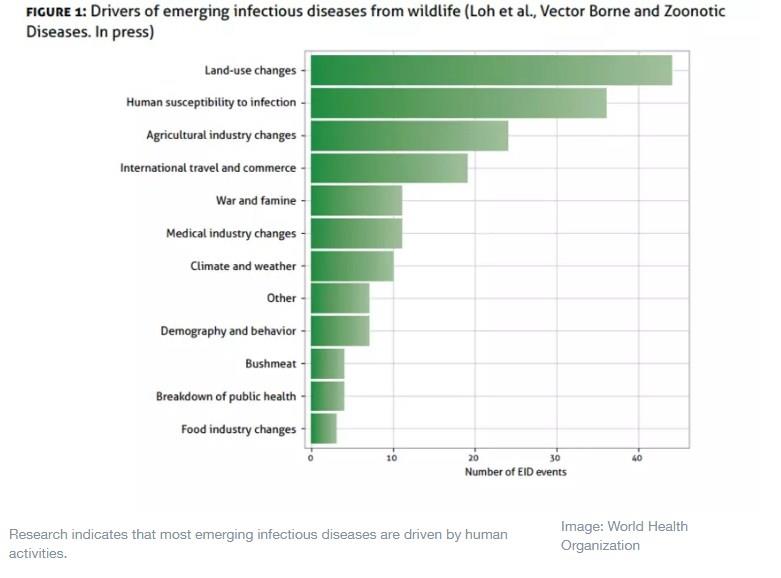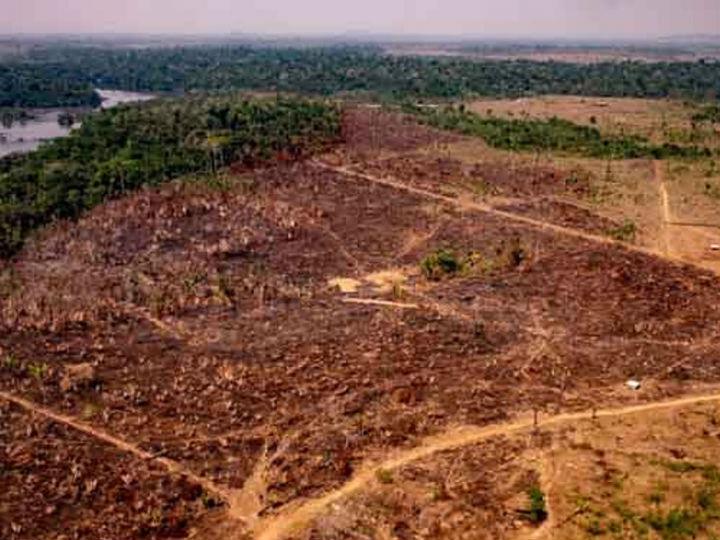by Lizzy Rosenberg*
A number of health organizations, including the United Nations, World Health Organization, and WWF International have joined forces in calling for governments to change their ways, regarding sustainable and environmental practices. As the pandemic continues to spread worldwide, scientists have looked into what may have caused the novel coronavirus’ mass destruction, and they concluded environmental destruction has largely contributed to the pandemic.
"We must recognize that the way we currently produce and consume food, and our blatant disregard for the environment more broadly, has pushed the natural world to its limits," according to an op-ed in The Guardian, which was collaboratively written by leaders from each organization. "Nature is currently declining globally at rates unprecedented in human history."

Health organizations have indicated the failed relationship between humans and nature led to COVID-19.
The WWF’s Director General, Marco Lambertini, the UN’s executive secretary, Elizabeth Maruma Mrema, and Maria Neira, the director of World Health Organization’s department of environment, climate change and health issued a warning in the form of an op-ed. The article essentially explained how unregulated wildlife trade and forest destruction is a major reason animal diseases are starting to affect humans.
The op-ed looked back on a number of diseases, from Zika, to AIDS, the Nipah virus, SARS, and Ebola, analyzing how they had jumped from animals to humans during environmental catastrophes. This has led them to believe that human’s "broken relationship" with nature — including mass deforestation, wildlife trading, and factory farming — could lead to more future pandemics.
Environmental icon Jane Goodall has brought up similar points in the past, saying that another future pandemic is almost inevitable if humankind doesn’t mend their relationship with planet earth. She, too, attributed human’s inhumane treatment of animals, including livestock and wildlife, to be the main cause of the pandemic, as it reportedly first infected a human at an "exotic animal market" in Wuhan, China.
These organizations are now calling for some major changes.
The health organization’s warning continued, calling for stricter wildlife trade regulations and further enhancing food safety. They credited China for announcing a temporary ban on trading and consuming wild animals — which may soon become permanent — and Vietnam, which is looking to take a similar course of action. They also hope to further regulate deforestation, which has ravaged natural lands across the globe.
"The way we currently produce and consume food, and our blatant disregard for the environment more broadly, has pushed the natural world to its limits," the op-ed reads. "Nature is currently declining globally at rates unprecedented in human history, and this is actually increasing our vulnerability to new diseases, particularly as a result of land-use change through activities such as deforestation, and agricultural and livestock intensification"
To those points, Jane Goodall also believes decreasing meat consumption could lower the possibility of a pandemic. Decreasing contact with animals and wildlife, could greatly lower the possibility of spreading diseases from animals to humans. A number of major world health leaders are also creating a Green Recovery Plan ahead of future pandemics, which will petition G20 leaders to enact a "healthy recovery."
Clearly, something needs to change before another future outbreak occurs, but it seems as though our world health leaders are eager to take serious actions to improve relationship between nature and humankind.
*Associate editor , Distractify
**first published in: www.weforum.org




 By: N. Peter Kramer
By: N. Peter Kramer
